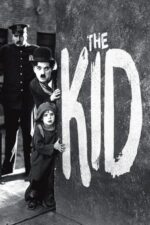The Invisible Walls: Exploring Class Differences on Film
Hey everyone! Let’s talk about something that’s been woven into storytelling since, well, stories began: class differences. It’s a theme as old as civilization itself, and it continues to resonate deeply because, let's be honest, it still shapes our world in profound ways. And cinema? Cinema is brilliant at holding up a mirror to those societal divides – sometimes gently, sometimes with a sledgehammer.
What I find fascinating isn’t just the obvious displays of wealth versus poverty (though those are certainly present), but how films explore the subtle nuances: the unspoken rules, the assumptions, the inherent biases that exist even when people think they're being fair. Think about it – have you ever felt like you were on the outside looking in? That’s what so many of these stories tap into.
Take "Concrete Plans," for example. It isn't just a gritty drama; it's a stark portrayal of how economic vulnerability can erode trust and exploit loyalty. These men, working hard, relying on their employer – and then being betrayed? It speaks to the power imbalance that exists when one person holds all the cards. It’s a feeling many people experience in different forms, even today.
Then you have something lighter like "Materialists." While it's framed as a romantic comedy, it cleverly uses the backdrop of New York City’s elite to examine how ambition and societal expectations can blind us – not just to love, but also to genuine connection. It asks: what are we really sacrificing in our pursuit of success?
"The Masterpiece" is particularly intriguing because it flips the script a bit. The wealthy couple's act of generosity seems noble at first, but quickly reveals how even well-intentioned actions can be rooted in power dynamics and a desire for something they lack – not money, but resilience and lived experience. It’s a reminder that wealth doesn’t equal happiness or fulfillment.
And let's not forget the charming "Min syster och jag." The princess’s elaborate ruse to connect with Roger is both hilarious and heartbreaking. It highlights how rigid social structures can stifle genuine connection, forcing people into artificial roles just to overcome those barriers. It reminds me a little of The Princess Diaries, but with a more poignant undercurrent about the limitations imposed by privilege.
Finally, "Baby It’s You" offers a sweeter perspective – showing how love can sometimes transcend even deeply ingrained social differences. It's a classic “opposites attract” story, but it also subtly critiques the prejudices and assumptions that exist within seemingly idyllic communities.
Ultimately, these films (and countless others) aren't just about rich versus poor; they’re about understanding each other, challenging our own biases, and recognizing the invisible walls we build – both consciously and unconsciously – between ourselves and those who are different. What film has you thinking about class differences? Let me know in the comments!







































